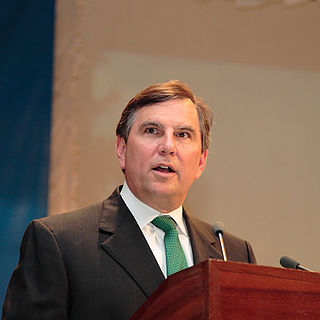Top 1200 Capitalism Quotes & Sayings - Page 2
Explore popular Capitalism quotes.
Last updated on April 21, 2025.
All existing art was religious until perhaps a hundred years ago. Within that there's obviously been lots of room for manipulation. I think that's because our current religion is capitalism. Capitalism has the functions of patronage, commissions, control of content, bestowing of space, elevation of certain artists over others based on how much they pander to people in power, the determination of value of the work, all of it. Capitalism commissions artwork now, the market.
At the turn of the [21st] century it was really Sergey Brin at Google who just had the thought of, well, if we give away all the information services, but we make money from advertising, we can make information free and still have capitalism. But the problem with that is it reneges on the social contract where people still participate in the formal economy. And it's a kind of capitalism that's totally self-defeating because it's so narrow. It's a winner-take-all capitalism that's not sustaining.
One of the popular views in the liberal circles of the West is that we are actually 'all victims of capitalism'. I disagree. This savage global capitalism is only one of the most terrible bi-products of the dominant Western culture of racism, greed, brutality and unbridled desire to control the world.
Every time I say the word capitalism, everyone just assumes I have plenty of Marxism in me, I do. But Russia and China had their bloody revolutions and even while they were Communist, they had the same idea about generating wealth - tear it out of the bowels of the earth. And now they have come out with the same idea in the end... you know, capitalism. But capitalism will fail, too.
We need to graduate from the ridiculous notion that greed is some kind of elixir for capitalism - it's the downfall of capitalism. Self-interest, maybe, but self-interest run amok does not serve anyone. The core value of conscious capitalism is enlightened self-interest. As Jim Cramer on CNBC says, "Bulls make money, bears make money, pigs get slaughtered."
...the transition from capitalism to Socialism and the liberation of the working class from the yoke of capitalism cannot be effected by slow changes, by reforms, but only by a qualitative change of the capitalist system, by revolution. Hence, in order not to err in policy, one must be a revolutionary, not a reformist.
The moral justification of capitalism does not lie in the altruist claim that it represents the best way to achieve 'the common good.' It is true that capitalism does -- if that catch-phrase has any meaning -- but this is merely a secondary consequence. The moral justification for capitalism lies in the fact that it is the only system consonant with man's rational nature, that it protects man's survival qua man, and that its ruling principle is: justice
Capitalism improves the quality of life for the working class not just because it leads to improved wages but also because it produces new, better, and cheaper goods.... Indeed, with capitalism, the emphasis shifted to producing goods as cheaply as possible for the masses--the working class--whereas artisans had previously produced their goods and wares mostly for the aristocracy. Under capitalism every business wants to cater to the masses, for that is where the money is.
Anarchism is opposed to states, armies, slavery, the wages system, the landlord system, prisons, monopoly capitalism, oligopoly capitalism, state capitalism, bureaucracy, meritocracy, theocracy, revolutionary governments, patriarchy, matriarchy, monarchy, oligarchy, protection rackets, intimidation by gangsters, and every other kind of coercive institution. In other words, anarchism opposes government in all its forms.
There is a contradiction between market liberalism and political liberalism. The market liberals (e.g., social conservatives) of today want family values, less government, and maintain the traditions of society (at least in America's case). However, we must face the cultural contradiction of capitalism: the progress of capitalism, which necessitates a consumer culture, undermines the values which render capitalism possible
























































